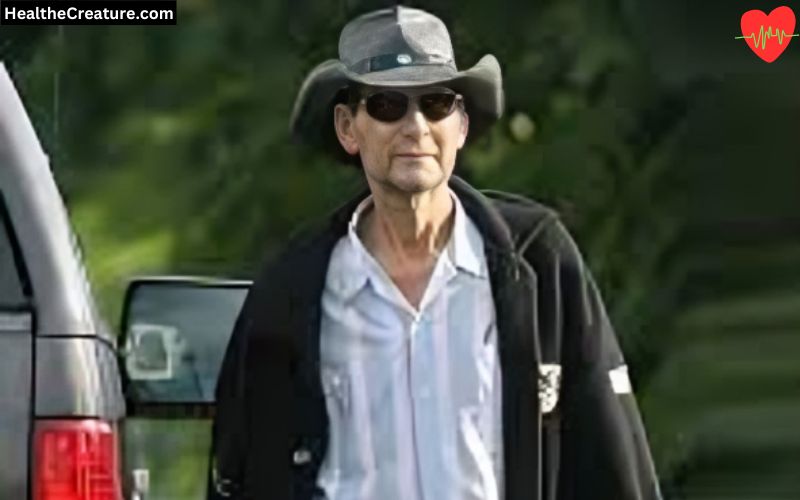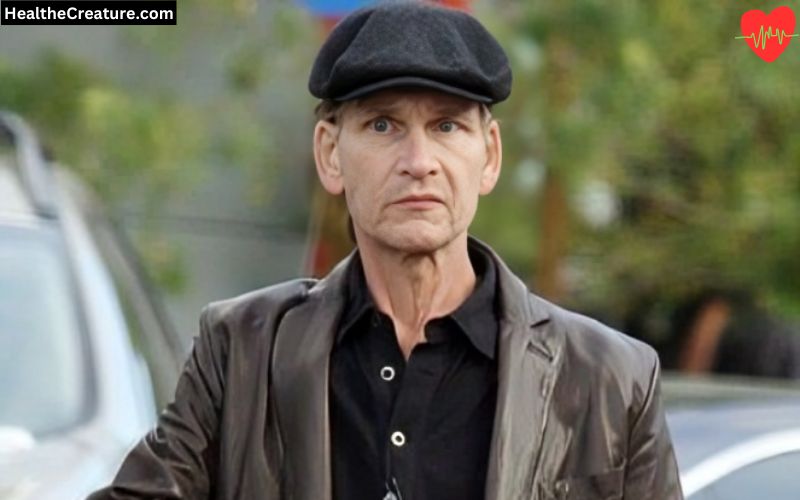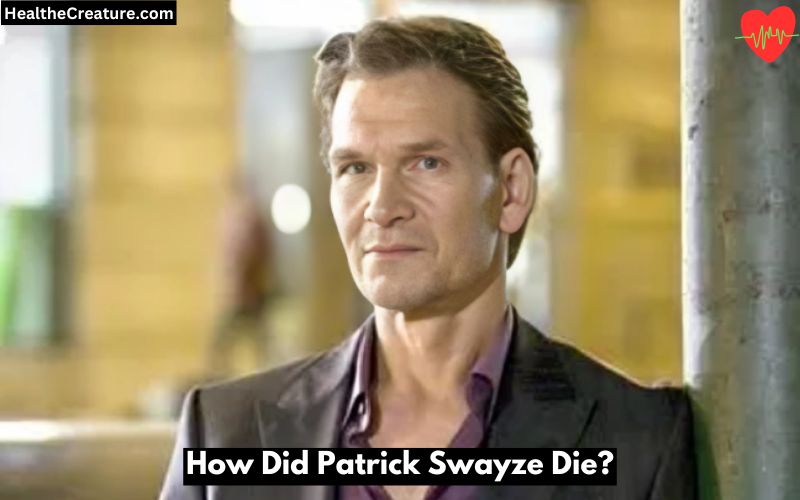Patrick Swayze, the charismatic star of iconic films like Dirty Dancing and Ghost, captivated audiences worldwide with his talent and charm. His untimely death in 2009 left fans heartbroken and sparked widespread interest in understanding the cause. In this article, we delve into the details of his life, battle with illness, and the circumstances surrounding his passing.
Who Was Patrick Swayze?

Patrick Swayze was an American actor, dancer, and singer known for his dynamic performances and versatility. Born on August 18, 1952, in Houston, Texas, Swayze grew up with a passion for dance, heavily influenced by his mother, who was a choreographer. He trained in ballet and honed his acting skills, which later became the foundation for his illustrious career.
Swayze gained global fame with roles in Dirty Dancing (1987) and Ghost (1990), earning critical acclaim and a devoted fanbase. His performance in Dirty Dancing showcased his dancing prowess, while Ghost highlighted his emotional depth. Beyond acting, he pursued music and wrote songs, including the hit “She’s Like the Wind,” which became a defining track of his career. Swayze’s dedication to his craft and ability to connect with audiences made him a beloved figure in Hollywood.
Throughout his career, Swayze became a cultural icon, celebrated for portraying complex characters with depth and emotion. His journey from a dancer in Texas to a global star remains an inspiring story of perseverance, talent, and passion.
Early Signs of Health Problems
In late 2007, Patrick Swayze began experiencing troubling symptoms, including severe abdominal pain and unexplained weight loss. Initially attributing these issues to a hectic schedule, he decided to seek medical attention when the symptoms persisted and intensified. At first, his discomfort was dismissed as minor, but it became clear that something more serious was at play.
The early warning signs of pancreatic cancer are often vague, making it difficult to diagnose the disease in its initial stages. In Swayze’s case, the pain and weight loss were among the first indicators that something was wrong. These symptoms were later confirmed to be associated with advanced-stage pancreatic cancer, which is notoriously difficult to detect until it has progressed significantly.
Despite his active lifestyle and seemingly robust health, Swayze’s condition underscored the unpredictable nature of this aggressive illness. His experience highlights the importance of recognizing early symptoms and seeking prompt medical evaluation, especially for conditions as elusive as pancreatic cancer.
How Did Patrick Swayze Die?

Patrick Swayze died from complications related to stage IV pancreatic cancer on September 14, 2009. His battle with the disease began in early 2008 when he was diagnosed with this aggressive form of cancer. Despite undergoing intensive treatment and demonstrating immense resilience, the cancer’s progression ultimately claimed his life.
Pancreatic cancer is one of the deadliest forms of cancer, with a high mortality rate due to its aggressive nature and late detection. By the time Swayze’s cancer was identified, it had already spread to his liver, significantly limiting treatment options. Throughout his 20-month battle, Swayze remained optimistic, continuing to work and advocate for cancer awareness.
His death at the age of 57 brought attention to the challenges faced by pancreatic cancer patients and the urgent need for improved early detection methods. Surrounded by loved ones at his Los Angeles home, Swayze passed away with dignity, leaving behind a legacy of courage and inspiration.
Understanding Pancreatic Cancer
Pancreatic cancer originates in the tissues of the pancreas, an essential organ for digestion and blood sugar regulation. This type of cancer is particularly challenging to diagnose early due to its subtle and nonspecific symptoms. Common signs include abdominal pain, jaundice, back pain, unexplained weight loss, and changes in appetite or digestion. Unfortunately, these symptoms often appear only after the cancer has progressed significantly.
In Swayze’s case, the disease was already in stage IV when detected, meaning it had metastasized to other organs. This advanced stage limited the effectiveness of available treatments, such as surgery or targeted therapies. Chemotherapy and palliative care became the primary focus to manage symptoms and improve his quality of life.
Pancreatic cancer remains one of the most difficult cancers to treat, with a five-year survival rate of less than 10%. This sobering statistic underscores the need for continued research, early screening methods, and advancements in medical technology to combat this devastating illness.
Patrick Swayze’s Cancer Diagnosis
In January 2008, Patrick Swayze’s doctors confirmed he had stage IV pancreatic cancer after a series of diagnostic tests, including imaging scans and biopsies. The advanced stage of his cancer meant that it had already spread to his liver and possibly other areas, significantly complicating treatment efforts.
Receiving such a diagnosis was a life-altering moment for Swayze and his family. Instead of succumbing to despair, he faced the news with determination. He began exploring treatment options with leading oncologists, who outlined a plan that included chemotherapy, experimental drugs, and lifestyle adjustments.
The emotional impact of the diagnosis was profound, but Swayze chose to approach his battle with an optimistic and proactive mindset. His willingness to discuss his condition publicly helped raise awareness about pancreatic cancer and the challenges associated with its treatment.
Treatment Journey and Challenges
Swayze’s treatment journey was marked by determination, resilience, and a relentless drive to fight the disease. He underwent rigorous chemotherapy sessions, which are commonly used to slow the progression of pancreatic cancer. Additionally, he participated in clinical trials to explore new treatment possibilities, including experimental drugs designed to target the cancer more effectively.
Beyond medical treatments, Swayze made significant lifestyle changes to support his overall health. He adopted a healthier diet, focusing on nutrient-rich foods, and quit smoking, a habit that is a known risk factor for pancreatic cancer. These changes reflected his commitment to fighting the disease on all fronts.
While Swayze initially responded positively to treatments, the aggressive nature of his cancer meant that setbacks were inevitable. The emotional and physical toll of the disease was immense, but he remained steadfast in his fight, inspiring those around him with his unwavering determination.
Media Coverage and Public Reactions
Patrick Swayze’s battle with cancer drew widespread media attention, with fans and colleagues rallying to support him. His openness about his diagnosis and treatment journey resonated deeply with people worldwide, shedding light on the realities of living with a terminal illness.
In interviews, Swayze spoke candidly about his experiences, emphasizing the importance of maintaining hope and advocating for greater awareness of pancreatic cancer. His bravery and vulnerability inspired countless individuals facing similar battles, encouraging them to remain resilient in the face of adversity.
Celebrities and fans alike expressed their admiration for Swayze’s strength and courage. Social media platforms and news outlets were flooded with messages of support, tributes, and personal stories from those who had been touched by his work and his advocacy. The outpouring of love and encouragement demonstrated the profound impact Swayze had on the world.
Continuing to Work Amidst Illness
Remarkably, Patrick Swayze continued working during his treatment, showcasing his dedication to his craft. He starred in the TV series The Beast, portraying a veteran FBI agent with remarkable intensity and depth. Despite his declining health and the physical toll of chemotherapy, Swayze delivered a powerful performance that earned critical acclaim.
His commitment to his role was a testament to his resilience and passion for acting. Swayze’s decision to keep working also reflected his desire to live life to the fullest, refusing to let his illness define or limit him. For fans and colleagues, his perseverance was a powerful reminder of the importance of pursuing one’s passions, even in the face of overwhelming challenges.
Final Months of Life
In the last months of his life, Patrick Swayze’s health deteriorated significantly. He faced multiple hospitalizations due to complications from cancer and its treatments, including infections and weakened immunity. Despite these challenges, Swayze maintained a positive outlook and focused on spending quality time with his loved ones.
His wife, Lisa Niemi, was a constant source of strength and support, standing by his side throughout his battle. The couple shared a deep bond that provided comfort and stability during the most difficult moments. Swayze’s determination to remain optimistic and cherish his relationships left a lasting impression on those around him.
Legacy and Awareness
Patrick Swayze’s legacy extends beyond his contributions to entertainment. His battle with pancreatic cancer brought much-needed attention to the disease, encouraging increased funding for research and support for patients. The Patrick Swayze Pancreas Cancer Research Fund was established to honor his memory and continue the fight against this deadly illness.
Through his openness and advocacy, Swayze raised awareness about the challenges of pancreatic cancer, inspiring others to support research efforts. His artistic achievements and humanitarian impact ensure that his memory lives on. Swayze’s life and legacy remind us of the importance of resilience, hope, and the enduring power of love.
See Also: What was the Tragic Accident of Ava Doyle?
FAQs
How did Patrick Swayze die?
Patrick Swayze died from complications related to stage IV pancreatic cancer on September 14, 2009. His death highlighted the aggressive nature of the disease and the need for greater awareness and research.
What type of cancer did Patrick Swayze have?
Patrick Swayze was diagnosed with stage IV pancreatic cancer, a particularly aggressive form of the disease.
How long did Patrick Swayze battle cancer?
He battled pancreatic cancer for approximately 20 months before passing away in September 2009.
Did Patrick Swayze continue acting during his illness?
Yes, he continued acting and starred in the TV series The Beast during his treatment, showcasing his resilience and dedication.
What is the legacy of Patrick Swayze?
Patrick Swayze’s legacy includes his remarkable contributions to film and dance, as well as raising awareness about pancreatic cancer through his openness and advocacy.
Conclusion
Patrick Swayze’s death was a tragic loss, but his courage and resilience continue to inspire. His openness about his illness shed light on the challenges of pancreatic cancer, fostering awareness and research. Though he is no longer with us, his artistic achievements and advocacy ensure that his impact endures, reminding us of the importance of perseverance and hope.


